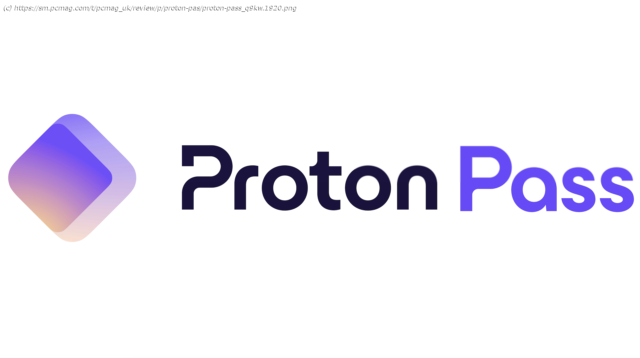Sleek and easy-to-navigate free password management apps for Android and iOS
Proton Pass is a password manager from Proton, a company with a stellar reputation as a provider of VPN and email services. The free version of the password manager is excellent; it includes syncing unlimited passwords across all of the devices you own, plus you can create email aliases, check your credentials for weak or reused passwords, and fill in your personal information on websites using the app’s form-filling features. The premium plans offer even more helpful options like enhanced storage options, secure link sharing, and data breach monitoring. All of this, plus a top-notch user interface and smooth performance, earns Proton Pass our Editors‘ Choice award for free password managers.How Much Does Proton Pass Cost?
Proton Pass has a free service tier, which includes unlimited password storage across unlimited devices, information storage, password hygiene monitoring, and the ability to create up to 10 email aliases.
Proton Pass Plus costs $4.99 per month ($59.88 annually) before discounts. If you want a lower rate, spring for the yearly subscription, which is $35.88. For that, you get all the free tier’s perks as well as an unlimited number of email aliases, mailboxes for your email aliases, the ability to generate multi-factor authentication (MFA) codes in the mobile app, the option to create multiple vaults, vault sharing for up to 10 users, credit card storage, file attachment storage, secure link sharing, dark web monitoring, detailed information about your account security, and the ability to enroll in Proton Sentinel (more on that feature later).
Though the non-discounted monthly price puts Proton Pass Plus on the upper end of password manager paid plans, the yearly plan is on par with other password managers‘ annual rates. For example, NordPass only offers yearly rates now, and though the first year’s price is $23.88, that rate increases to $35.88 per year afterward. 1Password’s monthly rate for a personal premium plan is $3.99, or $47.99 per year, or you can sign up for an annual plan and pay a familiar amount, $35.88.
That said, we encourage you to try before you buy, and that goes for everything. Use a free version of an app, or take advantage of a free trial period before committing to a year or longer. I like that Proton offers a fully functional free app, a monthly service tier, and an annual pricing plan.
If you want your family to be a part of the same password management ecosystem, check out Proton Pass Family. The plan is $6.99 per month, but it drops to $4.99 per month or $59.88 if you buy a year of service up-front. A Family account nets you all of the features included with a Plus account and adds support for up to six accounts, plus an admin panel for the Family account owner.
While testing the apps and extensions for this review, I noticed you can now access the entire Proton ecosystem from the Proton Pass app. This is a welcome change that I’d requested in past reviews and adds a lot of value to this app. The Proton suite of privacy and utility services includes free versions of Proton Calendar, Docs, Drive, Mail, and the highly rated Proton VPN. Check out the Proton Unlimited plan if you’re looking for premium versions of these services.Getting Started With Proton Pass
If you already have a Proton account, you can go to your account page to add a Proton Pass subscription to your account. If you are new to the Proton ecosystem, sign up for a Proton account with your email address and create a strong and unique password.
To get started with Proton Pass, I suggest downloading your appropriate browser extension first. That way, you can watch the helpful tutorial video while your vault loads and familiarize yourself with the user interface by exploring the web vault, which opens in a new window. Proton Pass has browser extensions for Brave, Chrome, Edge, and Firefox users, a web-based vault, and apps for Android, ChromeOS, iOS, Linux, macOS, and Windows.
Proton Pass can import from many competing password management apps and browsers. If your old credential storage app isn’t on the list, you can always upload a .csv containing your logins to your Proton Pass vault. I didn’t have any issues while importing the test credential lists. Data Privacy and Security With Proton Pass
Before I review and test a password manager, I send questions to the company about its privacy and security practices. I do this because I want you to have plenty of information about the companies handling your data. I included all the relevant information from Proton’s responses to my questions below.
Has your company ever had a security breach?
Proton has never experienced a security breach. The robust security model of Proton Pass, along with all other Proton services, is designed to offer multiple layers of protection. This includes Transport Layer Security (TLS), Secure Remote Password (SRP) protocol, and end-to-end encryption, among others. The core of Proton Pass‘ security architecture lies in its end-to-end encryption model, which encrypts not only passwords but all fields, including usernames, web addresses, and notes. This encryption is performed locally on the user’s device, ensuring that Proton servers never have access to unencrypted keys, data, or credentials.
What unencrypted information does the password manager store in user vaults?
Proton Pass ensures that no unencrypted information is stored in user vaults. All data within a Proton Pass vault is end-to-end encrypted.
What is the company’s policy regarding master passwords?
Users are required to create a strong account password when setting up their Proton Pass account. The account password plays a central role in the encryption process. Proton Pass encrypts the user key with a bcrypt hash of the account password and the account salt. This process occurs locally on the user’s device, ensuring that the account password is never transmitted to Proton servers in an unencrypted form.
Proton does not have access to, nor does it store, users‘ account passwords.






